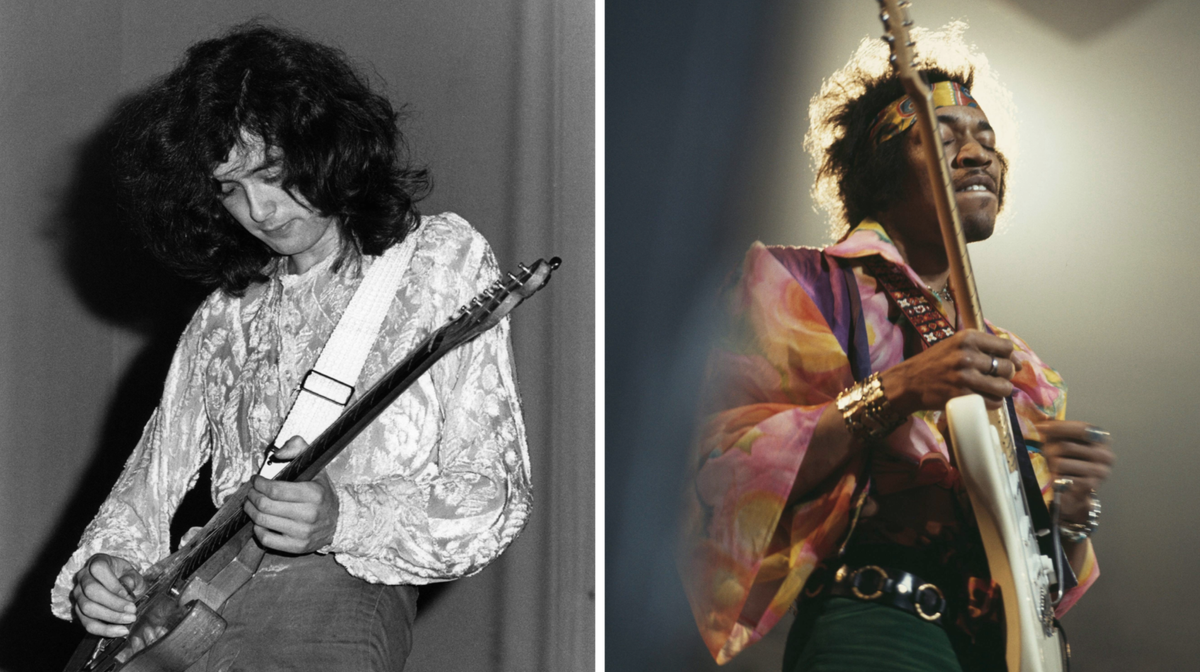“Jimmy Page was meticulous. Hendrix was more free-form”: The genius of two visionary guitarists by the producer who worked with both
And Eddie Kramer says there is even more unreleased Hendrix material in the vaults

Eddie Kramer, the producer famed for his work with Jimi Hendrix, Led Zeppelin, The Beatles, The Rolling Stones and more, has revealed how Hendrix and Jimmy Page had very different approaches to creating their music.
In a new interview with The Globe And Mail, Kramer discusses his work on the new box set Electric Lady Studios: A Jimi Hendrix Vision, which features 38 unreleased tracks recorded during 1970. And he recalls the chaotic atmosphere in which Hendrix worked at that time.

“It was like walking into a circus run by a mad genius,” Kramer says. “There were always people around – hangers-on, musicians, a constant stream of characters. One time during the Electric Ladyland sessions, there were 30 people crammed into the control room, just hanging out, drinking, smoking, making noise. I finally said, ‘Jimi, if we want to get this done, we need to clear out the riff-raff.’ He sighed and said, ‘Yeah, man, you’re right.’ We kicked everyone out except for me, him and the tape op. The minute it was quiet, he nailed the track in one take.
“That’s what it was like – chaos swirling around, but Jimi could hone in and find laser focus. It was the same intensity you saw in his live performances, but even more concentrated.”
Kramer worked as engineer on five Led Zeppelin albums - beginning with 1969’s Led Zeppelin II - and he says that Zep leader Jimmy Page had a far more methodical approach.
“Jimmy Page and Jimi had similar traits,” Kramer says. “They both had a clear vision of what they wanted. Page was meticulous, always thinking in terms of arrangements and technical details. He’d find some random instrument, like a clutch wheel with bamboo sticks, and figure out a way to use it in two takes. Jimi was more free-form – he’d just grab things and say, ‘Let’s see what happens!’ That’s what made each session so unique.”
Kramer also says that there is still more unreleased material in the Hendrix archives. “There’s always something new to discover,” he says. “Jimi recorded so much in such a short time – he was always trying new things. I wouldn’t say there’s a complete, unreleased album, but there are unheard versions and fragments.”
Get the MusicRadar Newsletter
Want all the hottest music and gear news, reviews, deals, features and more, direct to your inbox? Sign up here.

Paul Elliott has worked for leading music titles since 1985, including Sounds, Kerrang!, MOJO and Q. He is the author of several books including the first biography of Guns N’ Roses and the autobiography of bodyguard-to-the-stars Danny Francis. He has written liner notes for classic album reissues by artists such as Def Leppard, Thin Lizzy and Kiss. He lives in Bath - of which David Coverdale recently said: “How very Roman of you!”

“You’re the boss of the tone because you’re the one playing it, and you’re the one hitting the note”: Steve Vai has some advice for players who are unhappy with their tone

“Brian’s vision of a music revolution had been absolutely spot on”: Punk icon Brian James, founder and former guitarist of the Damned, dies aged 70









